Adagiato su una superficie di 9.065 kmq, il Parco Nazionale Tsavo West è più piccolo del suo enorme gemello Tsavo East. Ma ha alcune caratteristiche che lo rendono forse più bello. Ha anche strade più moderne, e in condizioni migliori rispetto alla media delle strade keniote, quindi è perfetto per i turisti e per i tour operator che organizzano safari. Ha una strana forma ad arco, che comprende anche montagne, villaggi e fattorie private. L’intero sistema di enti pubblici e privati coopera sotto il nome unico di Tsavo Conservation Area. Questa parte dei Parchi dello Tsavo ha meno animali ma offre attività più interessanti.
Territorio e fauna selvatica allo Tsavo West
Diversamente dall’ampia e arida terra d’oriente, lo Tsavo Occidentale ha un territorio fatto di savane erbose, boschi, verdi colline e montagne rocciose. Sembra più un paesaggio alpino ed è pieno di fiumi e laghi. Meritano una visita le meravigliose Mzima Springs – cascate d’acqua che escono da antiche rocce laviche nella regione di Shetani. Così come, ovviamente, il lago Jipe. In questo ambiente vivono alcuni animali tipici anche se non tanti come nell’area dello Tsavo Orientale. Incontrerete sicuramente leopardi, elefanti, giraffe, bufali, ippopotami. Potrete anche avvistare leoni e ghepardi. Tsavo West è un rifugio protetto per il rinoceronte nero orientale, inoltre ospita molte specie di uccelli. Tra questi, qui sono protette due specie rare – la quaglia re e la cannaiola di Bassora.
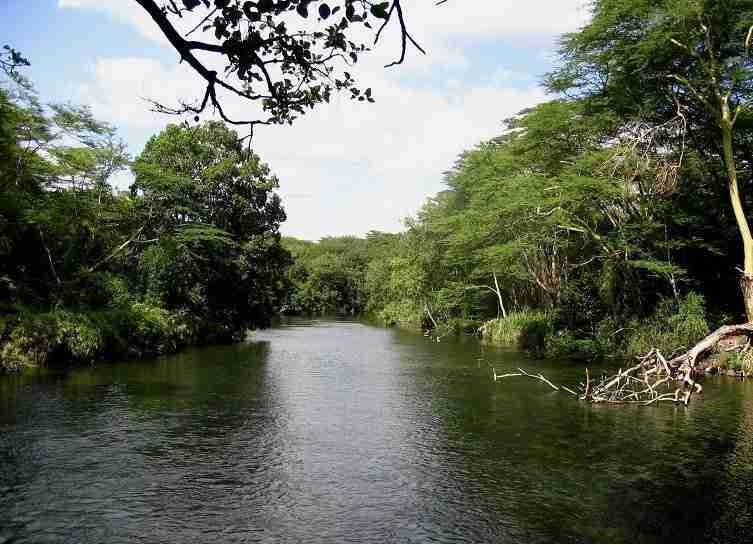
Siti archeologici a Tsavo West
Numerosi scavi archeologici hanno portato alla luce resti preistorici di esseri umani e animali che abitavano questa zona. La maggior parte dei siti storici antichi si trovano lungo i fiumi – Tsavo e Galana – ma anche sulle montagne. Molte grotte erano state utilizzate come antichi ricoveri per pastori o luoghi dove allevare animali. I resti risalgono alla prima e media età della pietra (oltre 10.000 anni fa) e, soprattutto lungo il fiume Galana, alla tarda età della pietra (da 6000 a 1300 anni fa).
Cosa fare allo Tsavo West
I turisti apprezzeranno molti tipi di safari, allo Tsavo West. Il tradizionale safari di avvistamento, ovviamente, ma anche safari archeologici. Si può anche fare un safari in barca per ammirare animali come ippopotami e pesci, sia nei fiumi che nei laghi. I visitatori possono effettuare arrampicate sulla splendida roccia di Kichwa Tembo o sul cosiddetto Great Tsavo Chimney!
Ci sono molti campeggi e lodge, anche hotel eleganti, intorno e all’interno dell’area del Parco. Potreste soggiornare in una delle tante fattorie private e ranch sparsi per il Parco. Per entrare nello Tsavo West e usufruire delle sue strutture e servizi è necessario pagare un biglietto di 30 Dollari a persona (20 per i bambini).
Come arrivare
Per raggiungere il Parco Nazionale di Tsavo West potete venire in auto – la distanza da Nairobi e Mombasa è di circa 240 km – poiché le strade qui sono in buone condizioni. Ma il modo più veloce è sempre l’aereo. Provate a viaggiare con un volo locale da Nairobi che atterrerà in uno dei tre aeroporti appartenenti al Parco stesso.
(traduzione dall’inglese di Grazia Musumeci)
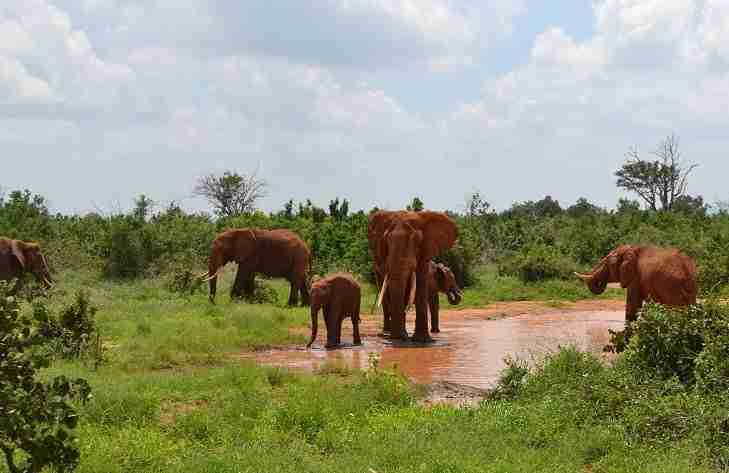


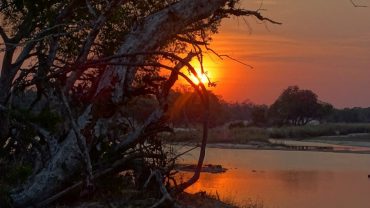
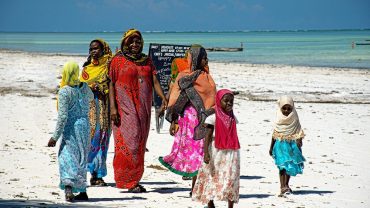
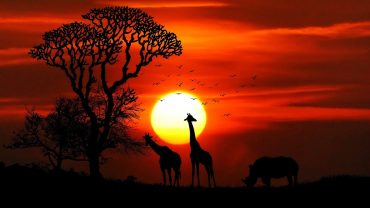
Comment (0)